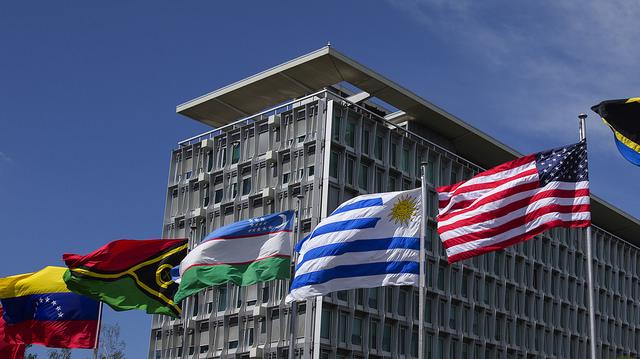A World Health Organization (WHO) emergency committee that met yesterday for the ninth time to discuss MERS-CoV developments expressed concern over the spread of the virus in South Korea and other recent events, but held off on recommending that a public health emergency be declared.
Meanwhile, South Korea's health ministry reported eight more infections and another death from MERS-CoV (Middle East respiratory syndrome coronavirus), boosting the outbreak total to 162 cases, 20 of them fatal.
Emergency committee conclusions
The 17-member group met yesterday by teleconference, and the WHO announced its findings and recommendations today in a statement and at a media telebriefing in Geneva with Keiji Fukuda, MD, the WHO's assistant director-general for global health security.
Fukuda also recently co-led a joint mission to South Korea to investigate the outbreak. The emergency committee used the joint committee's report that was released on Jun 13 in its deliberations.
Fukuda said the arrival and spread of the virus in South Korea's health settings took everybody by surprise, adding that a lack of awareness among health providers contributed to a delay in identifying the virus that helped fuel its spread. "Healthcare providers didn't expect MERS to walk through the door," he said. "Being prepared is a very basic lesson, but so true."
The emergency committee said in its statement that there is still no evidence of sustained community transmission, but close monitoring is critical. The panel called the event a wake-up call. "In a highly mobile world, all countries should always be prepared for the unanticipated possibility of outbreaks of this and other serious infectious diseases."
Experts, including Fukuda, have said it wouldn't be surprising to see some transmission outside of healthcare settings in South Korea, similar to what has occurred in the Middle East. Based on illness onsets, the outbreak appears to be slowing, he added.
Fukuda acknowledged that the outbreak in South Korea, where about 6,500 people are under contact monitoring, has raised international anxiety levels, but he said initial genetic sequence analysis hasn't identified any major changes compared to the MERS viruses that are circulating in the Middle East.
He said the committee was unanimous in its assessment that global MERS-CoV developments don't constitute a public health emergency of international concern as defined by the International Health Regulations, and WHO Director-General Margaret Chan, MD, MPH, agreed with the group's guidance.
Transmission dynamics still a mystery
The outbreak profile resembles that of similar hospital-related MERS outbreaks in the Middle East, "just moved to a different location," Fukuda said. He said the joint mission found that infection prevention and control lapses allowed the virus to spread, along with infected and uninfected people mixing in emergency departments (EDs) and multi-bed hospital rooms.
For example, he said that during the joint mission to South Korea members learned that a patient from the initial hospital who brought the infection to Samsung Medical Center's crowded ED was seen on security camera footage coughing a lot and mobile during his nearly 3-day stay there in Seoul.
He added that cultural practices in South Korea of "doctor shopping" carried the virus from one hospital to the next, and that the practice of hospital visitors providing much patient care also increased the number of people exposed to MERS-CoV.
Fukuda said that despite the delay in recognizing the virus, South Korea had the capacities in place to bring the outbreak under control fairly rapidly, and that the country has high-quality contact monitoring.
The joint mission investigation shed little new light on how MERS-CoV is transmitted, and it's still not clear if factors such as environmental contamination or poor ventilation play a role, he said. "We don't really know."
Currently, the public health emergencies are still in effect for two other diseases—polio and Ebola. WHO emergency committees typically meet every 3 months or more often, depending on developments.
Case and death update
South Korean health officials today announced eight more MERS-CoV illnesses, four of them with links to Samsung Medical Center's ED, Yonhap News Agency reported today. Korean health officials have said about half of the outbreak's transmission resulted from exposure in the hospital's ED. The new cases lift the country total from the disease to 162.
The patient who died had a preexisting respiratory condition and high blood pressure, according to the report, which citied a health ministry official. So far 90% of patients who died from MERS-CoV in South Korea's outbreak had underlying medical conditions. The latest death pushed the outbreak's fatality count to 20.
The health ministry said today that 134 of the infections have been in hospital patients, their family members, or visitors, the Korea Herald reported. The remaining 28 cases involved healthcare workers and staff.
In a further breakdown of the numbers, it said 76 patients were being treated for other diseases at the time they were infected with MERS-CoV and that 58 illnesses have been confirmed in hospital visitors.
See also:
Jun 17 WHO statement
Jun 17 WHO media briefing audio file
Jun 17 Yonhap story
Jun 17 Korea Herald story



















